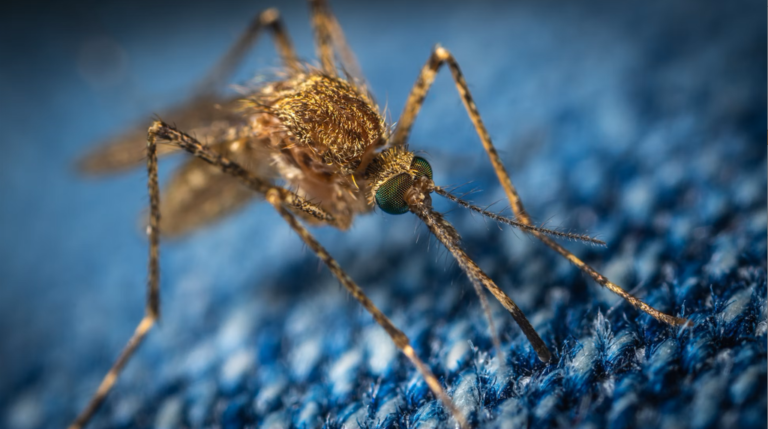Project Description
Biological control of mosquitoes often fails and thus needs radical new approaches; here, we will harness variation in the predatory efficiencies of native invertebrate predators of mosquitoes. Behavioural, ecological and genetic techniques will be blended and the research operationalised locally and globally.
Mosquito borne diseases affect millions of humans and animals annually and may be exacerbated with climate change; hence, innovative new methods to reduce these impacts are imperative. The development of biocontrol using predators of mosquitoes to tackle disease transmission (eg malaria, West Nile virus) has typically used alien predators1, often leading to deleterious impacts on non-target organisms/communities. Changing focus from vertebrate (eg fish) to invertebrate (eg copepod) control agents brings advantages, as invertebrates are more abundant and tolerant of environmental extremes, and have greater reproduction and dispersal. Thus, small invertebrate predators have great potential for cheap, easy to manage and effective mosquito biocontrol2. Specifically, we will harness variation in the predatory efficiency among individuals within populations of native predators, evidenced by variation in per capita feeding rates or “functional responses” of such predators3. We will thus screen a range of native European and African invertebrates (eg beetles, shrimp, copepods) and proceed to test five core Hypotheses: With functional response analyses, we will quantify individual mosquito predator efficiencies (H1), test individual predator consistency over time (H2) and identify heritability of such traits in subsequent generations (H3). Transcriptomic differences will be assessed using RNAseq (H4) and correlation/deep machine learning approaches, for example, Logic Forest will investigate the relationship between the gene expression signatures and phenotypic measures linked to increased predator efficiency. The genomic impact will be assessed via high throughput RNA sequencing (H5). The deep RNA-Seq will guide gene expression-based quantitative trait locus (QTL) studies providing information on allele-specific expression (ASE) and RNA-isoform expression. This methodology will allow us to exploit variation among individuals within populations, and identify those native species with the highest, and most consistently heritable, biocontrol potential. We will engage with local and global stakeholders including NGOs, health professionals and government to disseminate ‘inoculation packs’ of native biocontrol agents; plus provide education packs of universally-interpretable (ie pictures and flow charts) information on use of control agents. You will gain a range of transferable skills including: experimental design and implementation; advanced statistical techniques; computational biology and ‘omics approaches; and communication skills through traditional means and social media to a wide range of international stakeholders, including engagement with European and South African partners.
CANDIDATE BACKGROUND
Essential skills: Basic laboratory and field work skills in the areas of ecology/behaviour/genetics.
Desirable skills: Experience of mosquito or broader invertebrate ecology in laboratory and field situations; training in bioinformatics and R statistical software. Full training will be provided otherwise.
Photo credit: Jaimie Dick, Ross Cuthbert, QUB
Supervisors
Jaimie TA DickPrimary Supervisor: | Profile: Jaimie TA Dick Email: j.dick@qub.ac.uk Institution: Queen's University, Belfast Department/School: School of Biological Sciences |
Thomas BodeySecondary Supervisor: | Profile: Thomas Bodey Email: thomas.bodey@abdn.ac.uk Institution: University of Aberdeen Department/School: School of Biological Sciences |
Gary HardimanAdditional Supervisor: | Profile: Gary Hardiman Email: g.hardiman@qub.ac.uk Institution: Queen's University, Belfast Department/School: School of Biological Sciences |
Ross CuthbertAdditional Supervisor: | Profile: Ross Cuthbert Email: r.cuthbert@qub.ac.uk Institution: Queen's University, Belfast Department/School: School of Biological Sciences |
Additional Supervisor: | Prof Ryan J Wasserman, Rhodes University Email: r.wasserman@ru.ac.za |
References
1.Shaalan, E. A.-S. & Canyon, D. V. (2009). Aquatic insect predators and mosquito control. Trop. Biomed. 26: 223–261.
2. Cuthbert, R.N., Callaghan, A., Sentis, A., Dalal, A. & Dick, J.T.A. (2020). Additive multiple predator effects can reduce mosquito populations. Ecological Entomology, 45: 243-250.
3. Alexander, M.E., Dick, J.T.A. & O’Connor, N.E. (2015). Predation in the marine intertidal amphipod Echinogammarus marinus Leach: implications of inter- and intra-individual variation. Journal of Experimental Marine Biology and Ecology, 462: 50-54.
QUADRAT Themes
- biodiversity
- environmental-management






















































